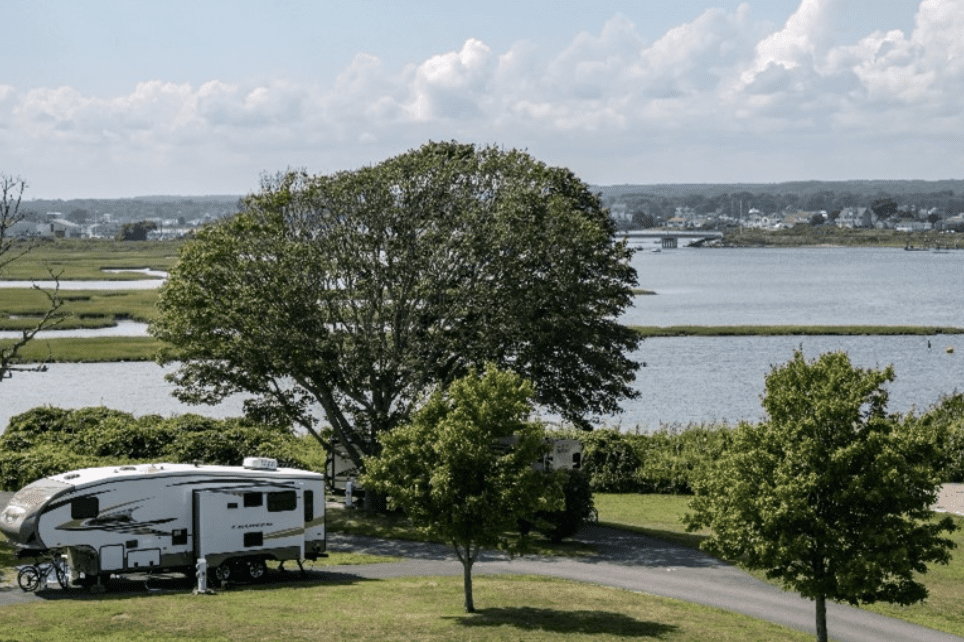Search Posts
Recent Posts
- Rhode Island Legislature Highlights Accomplishments for the 2025 Session June 25, 2025
- Sports in RI: Cody Tow, Volleyball Past, Present and Into His Future – John Cardullo June 25, 2025
- Need a Break? Time for Sour Grapes – Tim Jones June 25, 2025
- Rhode Island Weather Forecast for June 25, 2025 – Jack Donnelly June 25, 2025
- It is what it is: Commentary on 6.25.25 with Jen Brien June 25, 2025
Categories
Subscribe!
Thanks for subscribing! Please check your email for further instructions.
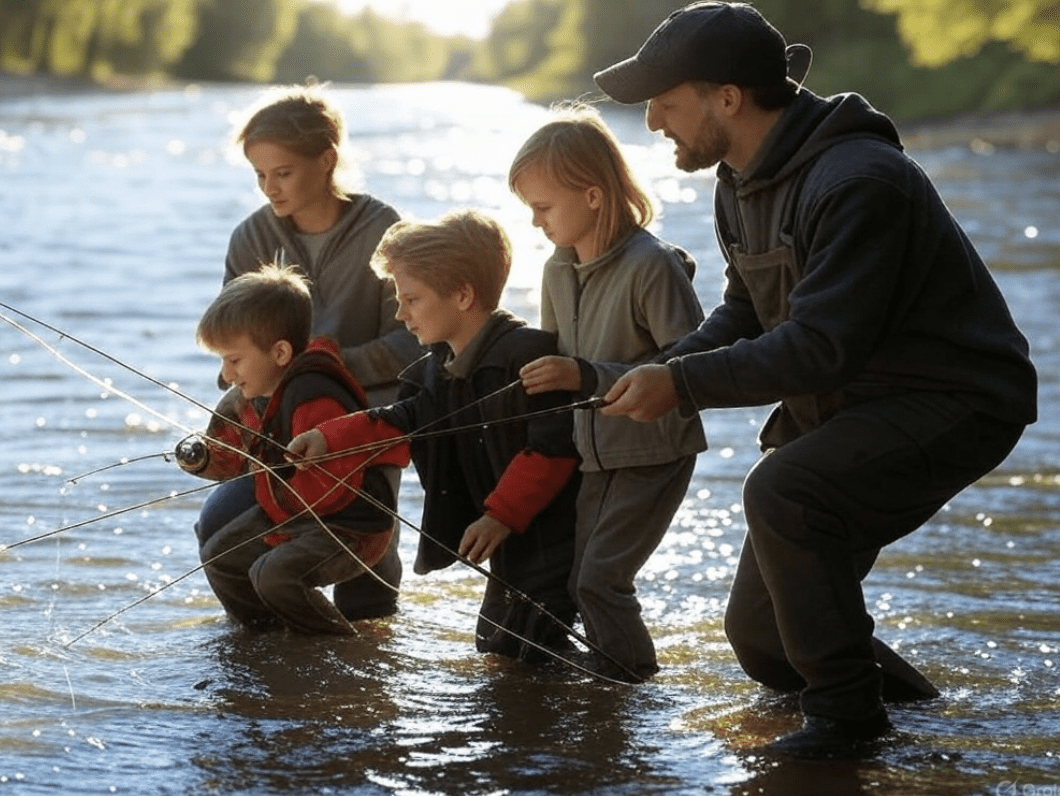
Outdoors in RI: Opening Day Trout, Fishing season – Campgrounds open – Egg Hunt – Roadkill – 2A
Fishing Season opens TOMORROW – April 12th
Freshwater Fishing Season is April 12, 2025 – February 28, 2026. Rhode Island lakes, ponds, rivers, and streams designated as trout-stocked waters are stocked and set for a great first day and first weekend – don’t let the rain keep you away. Opening Day of Trout Season occurs annually on the second Saturday in April and continues through the last day of February at midnight.
The RI DEM has common questions and safety tips on their web page at: https://dem.ri.gov/natural-resources-bureau/fish-wildlife/freshwater-fishing/trout-stocked-waters – everything from where to fish – complete list of ponds and locations – rules – and how to win the Golden Trout Pin – and other awards.
So – go for the day – go for a few hours – but GO!
New Recommendations on Fish Consumption for Parts of the Pawcatuck River and Grills Preserve Pond Due to PFAS Contamination
The Rhode Island Department of Health (RIDOH) is recommending that the public limit consumption of native fish caught in certain areas of the Pawcatuck River downstream of Burdickville Road in Hopkinton and to avoid eating any fish from the Grills Preserve Pond in Bradford. Fish caught in these areas have had high levels of PFAS (per- and polyfluoroalkyl substances).
RIDOH is issuing the following fish consumption recommendations to protect public health:
– Do not eat any fish caught from the Grills Preserve Pond.
– Eat no more than 1 meal per month of native fish (i.e., perch, bass, and pickerel) caught from the Pawcatuck River downstream of Burdickville Road in Hopkinton.
– Since PFAS tend to accumulate more in organs compared to muscle tissue, do not eat the organs of fish caught from the Pawcatuck River downstream of Burdickville Road in Hopkinton.
– RIDOH does not currently have the data needed to make a health-based recommendation on the safety of consuming stocked trout in this section of the Pawcatuck River. Individuals concerned about PFAS should know that these species can accumulate PFAS. People can be exposed to PFAS from a variety of sources and can lower their intake from one or more sources by limiting or replacing them.
Stocked trout were not collected in this study, so RIDOH does not have data to show how much PFAS they contain. Generally, research shows that fish take up PFAS quickly from the environment. Stocked trout are raised in a separate location and do not spend as much time in the river. Right now, there is not enough data about how fast PFAS levels increase in stocked trout. For stocked trout in the Pawcatuck River, RIDOH cannot determine if PFAS will reach levels of concern before they are fished. RIDOH is currently working with the Rhode Island Department of Environmental Management (RIDEM) to get better data on whether PFAS reaches levels of concern in stocked trout. RIDEM has also changed the stocking schedule so that PFAS in stocked trout are less likely to reach levels of concern.
“Fishing is a valued tradition in Rhode Island, and fish are a good source of protein and nutrients. However, fish in some areas can have high levels of pollutants that can harm our health,” said Director of Health Jerome Larkin, MD. “While we are still learning about the sources and effects of PFAS, it is important to take steps to lower our exposure to these chemicals. After careful consideration of the data and health risks, we are recommending that people eat only one meal per month of native fish (i.e., perch, bass, and pickerel) caught from the Pawcatuck River downstream Burdickville Road in Hopkinton.”
RIDOH has posted signs at the Grills Preserve Pond advising people not to eat the fish. RIDOH is planning to post signs at popular fishing spots along the Pawcatuck River in the area of the advisory. The Department is also planning two public meetings to discuss the findings, hear community concerns and input, and provide guidance on reducing exposure risks. The community meetings will be scheduled in spring 2025. Sign up to be notified when the meetings are scheduled at health.ri.gov/fish.
About PFAS
PFAS are a class of chemicals that repel oil and water. They have been used since the 1940s to make products water-, grease-, and stain-resistant and in certain fire-fighting products. Some PFAS take centuries to break down in the environment. PFAS that don’t break down build up in and pollute the environment. PFAS can also build up in our bodies. People can be exposed to PFAS by eating food, drinking water, accidentally swallowing dust, or breathing air polluted with PFAS.
Studies have shown certain PFAS can contribute to negative health effects, including: higher cholesterol levels; lower infant birth weights; weakened immune response; and increased risk of some cancer, including kidney cancer.
More Details About the Advisory and Data RIDOH is making these recommendations based on the known health risks of PFAS and data on PFAS in fish that is available today. RIDOH, the Rhode Island Department of Environmental Management, researchers from Roger Williams University, and the Environmental Protection Agency recently worked together to test several fish species that are native to the Pawcatuck River and Grills Preserve Pond for PFAS. The fish tested included sunfish, largemouth bass, and chain pickerel.
Fish caught from the Grills Preserve Pond had very high levels of PFAS that could increase the risk of health effects. Based on the level of PFAS, RIDOH advises the public not to eat fish from the Grills Preserve Pond.
Fish were collected from the Pawcatuck River in the area of the former Bradford Dyeing Association facility also had high levels of PFAS. However, levels of PFAS were lower in fish from the Pawcatuck River than the Grills Preserve Pond. Therefore, RIDOH advises the public to eat only one native fish meal per month from the Pawcatuck River downstream of Burdickville Road in Hopkinton. Upstream of this point, RIDOH does not have data to make a recommendation on the amount of fish that is safe to eat.
Currently, there is no data on how quickly stocked trout in the Pawcatuck River accumulate PFAS from the river.
There is limited data from other states and scientific studies that shows stocked trout can accumulate PFAS quickly. However, studies on this topic have used conditions that are not reflective of conditions in the Pawcatuck River. RIDOH may change this guidance if data show that stocked trout in the Pawcatuck River do accumulate PFAS to levels that cause health concerns. Similarly, RIDOH does not have the data needed to make a health-based recommendation on the safety of eating wild game and bird species near Bradford Dyeing Association. People concerned about PFAS should know that these species (e.g., stocked trout and game birds) can accumulate PFAS. People can be exposed to PFAS from a variety of sources. You can lower your exposure to PFAS by limiting or replacing common sources of PFAS. PFAS is common in many products like grease-resistant food packaging, non-stick pots and pans, and stain-resistant carpeting.
For more information about fish consumption guidance, visit health.ri.gov/fish or contact the RIDOH Health Information Line at 401-222-5960. The full health consultation report and addendum on stocked trout are available on the RIDOH website at health.ri.gov/ehrap. For more information on PFAS and health risks, visit health.ri.gov/pfas.
___
Time to promote the outdoors to our children
Camouflaged Egg Hunt at Audubon
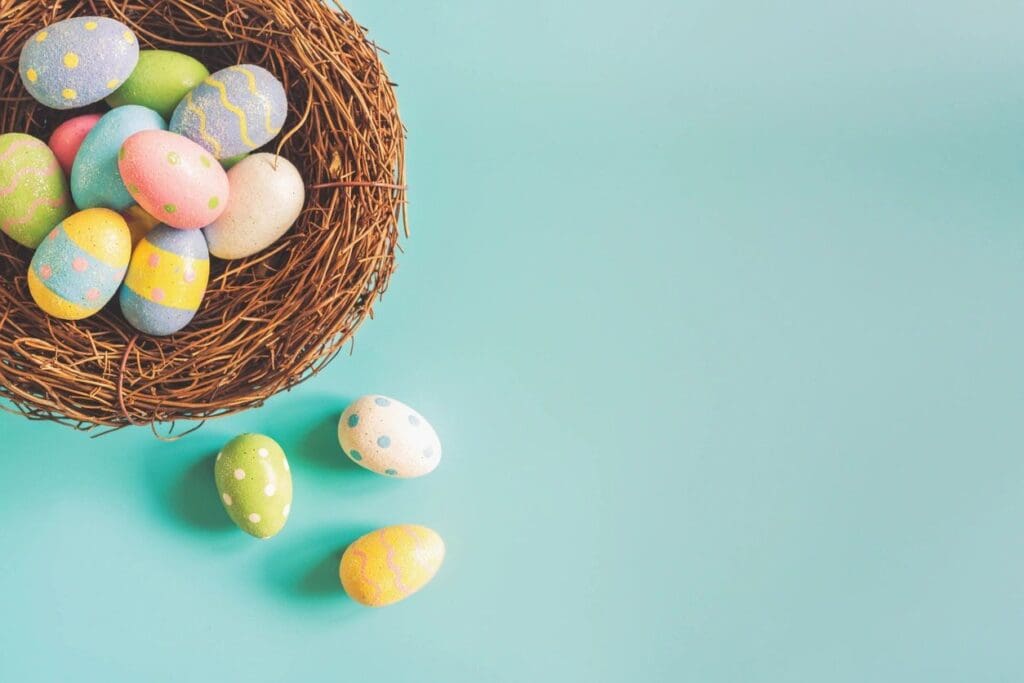
The Audubon Society offers a fun alternative to the same old Easter Egg Hunt! It’s April 12th, 9:30am to 11am. Children, ages 3 to 10, hunt for brown eggs in a natural setting and quickly learn how well the eggs camouflage. The children trade their found eggs for a prize to take home, with special prizes going to the finders of the ‘golden eggs.’
Participants should bring a basket or bag for your hunt. Registration is required. This event is rain or shine, so dress for the weather. Sign in begins at 9:30 am, the hunt begins promptly at 10:00 am. Advance registration is required.
Audubon Nature Center and Aquarium, 1401 Hope Street, Bristol, RI April 12, 2025; 9:30-11:00am; Fee: $5/member child; $7/non-member child. Ages: 3-10.
Contact E-mail is msolis@asri.org. Cost is $5.00 per Member Child / $7.00 per Non Member Child
___
NOTE: Coggeshall Farm’s opening day was set for April 12th – due to weather it will now be held April 19th – look for info on this event in next week’s article!
___
Four State Campgrounds Open April 12th
The Rhode Island Department of Environmental Management (DEM) is announcing that four state campgrounds will open for the season on Saturday, April 12. The annual opening of Burlingame, Charlestown Breachway, Fishermen’s Memorial, and George Washington Memorial State Campgrounds aligns with spring school vacation and trout fishing season, offering families a chance to enjoy Rhode Island’s outdoors. East Beach State Campground opens on Saturday, May 24. Find your next adventure at a Rhode Island State Campground at: riparks.ri.gov/campgrounds.
Fishermen’s Memorial, George Washington, and Burlingame State Campgrounds offer a pre-check-in process to help campers “Camp More, Wait Less.” After booking through Reserve America system, they will receive an email to pre-register, which must be completed at least two days before arrival. Campers needing a second car pass can select and pay for it up to one day before their registration.
Fishermen’s Memorial State Campground is a popular spot in Rhode Island, offering tent and RV camping in a seaside village atmosphere, with tree lined paths, and activities for the entire family, including basketball, tennis, horseshoes, and a playground. It hosts a weekly RI Grownfarmers market from May to October on Sundays from 8:30 AM to 12 PM. The campground is near Scarborough, Roger Wheeler, and Salty Brine beaches, and one mile to the Block Island ferry dock.
DEM is recruiting for a variety of seasonal jobs, including lifeguards, park rangers, visitor assistants, and natural resource operations, to work at state beaches, parks, and campgrounds during the busy summer season. With only 52 full-time employees managing 22 major parks and beaches, DEM’s Division of Parks and Recreation relies heavily on seasonal employees. Benefits include working outdoors, building friendships, and serving our communities. Hundreds of talented seasonal employees work hard each summer alongside our full-time staff to make it possible for millions of people to enjoy Rhode Island’s beautiful natural places. Interested applicants can apply on DEM’s seasonal employment webpage.
___
Permit Allows Public to Salvage Roadkill
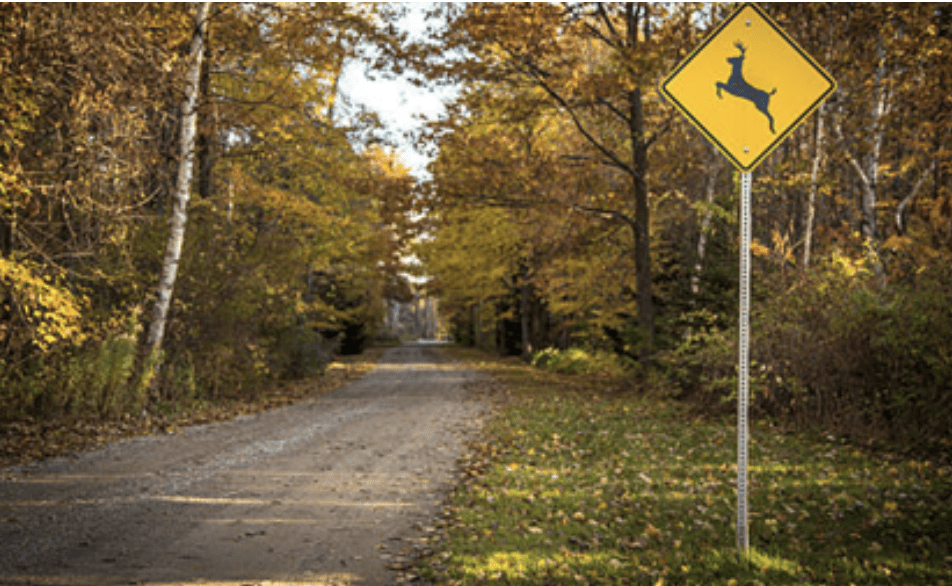
The Rhode Island Department of Environmental Management (DEM) is announcing a new regulation that allows the public to collect certain wildlife species killed in vehicle collisions.
Recently passed legislation sponsored by Chairman of the House Environment and Natural Resources Committee David Bennett and Senate Majority Whip David Tikoian gives DEM more flexibility to address wildlife vehicle collisions, enabling the public to salvage deer or other wildlife with a permit. This approach makes use of an underutilized resource and eases the burden on state staff removing carcasses.
A permit is required within 24-hours of collecting wildlife struck by a vehicle. To receive a permit, the public must report the species, estimated age and sex, a photo, and location. Eligible species include white tailed deer, turkeys, beavers, coyotes, fishers, red and gray foxes, muskrats, pheasants, squirrels, rabbits, and racoons. Fisher and foxes have additional requirements found in the regulations on the reporting webpage. Reports can be submitted via the form at www.dem.ri.gov/wildlife-salvage-permit or by leaving a message at 401-789-0281 with the required information.
Before salvaging roadkill, the public should prioritize safety and follow traffic laws. The animal may be field dressed before it’s removed, but parts cannot be left behind, which is a violation of state law and risks attracting other wildlife. The permit allows the possession of one animal killed only by vehicular collision – each individual animal requires its own unique permit.
The new legislation expands reporting requirements to include most wildlife collisions that cause significant vehicle damage, not just deer. This ensures that all vehicle collisions involving wildlife are reported to DEM. Reporting helps DEM’s Division of Fish & Wildlife(DFW) track populations and improve highway safety. Road-killed animals may not be tagged with hunting tags, and injured animals cannot be killed for salvage, though law enforcement may euthanize and allow salvage.
Last year, DEM received 1,347 reports of deer vehicle collisions (DVCs). DVCs are a public safety risk and average $6,717 in damages per collision according to the Federal Highway Administration. Deer reproductive behavior drives most DVCs. White-tailed deer are common in Rhode Island and regulated hunting is the most effective, method of controlling deer populations, balancing ecological and social factors. DEM biologists seek to balance hunting opportunities while reducing the negative impacts of overpopulated deer, including crop losses, nuisance complaints, and DVCs.
___
Update – RI and 2A
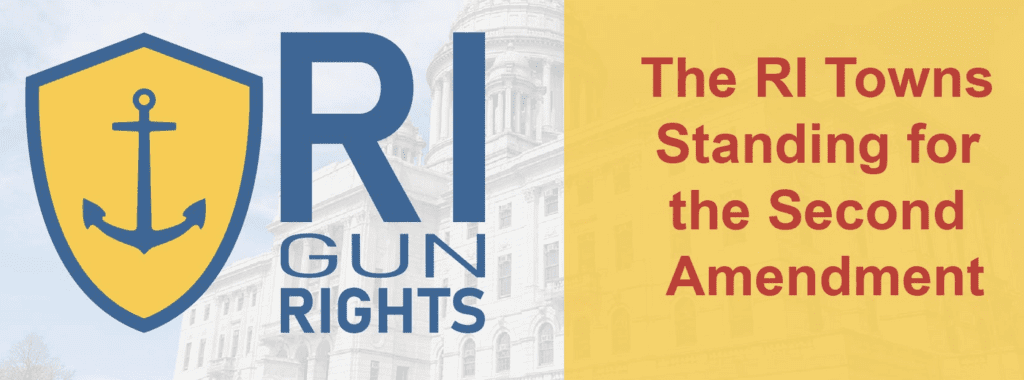
From the RI Gun Rights group:
Towns Standing Strong in 2025
So far, these cities and towns have passed resolutions opposing RI gun control legislation currently underway at the RI House and Senate. We’ll update this list if more towns join the ranks.
- Burrillville (passed March 12, 2025) [Document]
- Exeter (passed April 7, 2025)
- Foster (passed March 27, 2025) [Video]
- Glocester (passed March 20, 2025) [Video] [Document]
- Hopkinton (passed April 7, 2025) [Video]
- Lincoln (passed March 18, 2025) [WPRI Video]
- North Providence (passed April 1, 2025) [Video]
- Tiverton (passed April 7, 2025) [Video]
- West Greenwich (passed April 2, 2025) [Coalition Radio Video]

